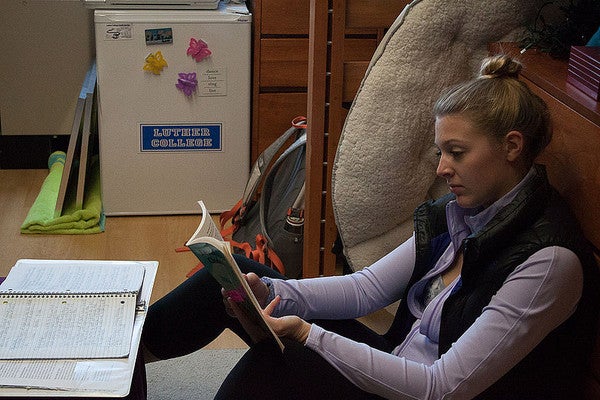What to Do If You Get Sick at College
While the transition to college is very exciting, it does come with the new responsibility of managing your own health since it’s usually the first time away from home. The combination of academic stress, new social activities, lack of sleep, and living in very close quarters can cause students to get sick more frequently.
While it is difficult to avoid illness entirely, there are steps to take to minimize risk and recommendations to follow if you do get sick at college:
Visit Your Student Health Center
When you do get sick, the Campus Student Health Center is the best place to start. They’re the most convenient and most affordable resource, and the nurses and physicians are attuned to the unique needs of college students. They’re ready to provide reassurance, can help you with most all of your health care needs, and connect you to additional campus resources and support if needed.
Prepare
Prepare in advance for illness with a simple cold kit containing a thermometer, over-the-counter medications such as ibuprofen/Tylenol, a decongestant, and honey is often the best cough suppressant. Monitor your health including your temperature, drink plenty of fluids, and rest as much as possible.
Get a Flu Shot
The flu vaccine is still the single best defense against the flu. This is especially important now that you are living in a residence hall with many other people where disease spreads easily and quickly.
Wash Your Hands
Regular thorough hand washing is one of the best ways to remove germs, avoid getting sick, and prevent the spread of germs to others.
Get Enough Sleep
Sleep deprivation has a significant impact on learning, mood, overall health, and increases risk of illness. Practice healthy sleep habits and aim for at least 7 hours of sleep a night.
Eat a Balanced Diet
When you eat healthy, you equip the body with nutrition it needs to fight stress and avoid illness.
Exercise and Manage Stress
Exercise decreases levels of tension, elevates and stabilizes mood, improves ability to sleep, reduces stress and lowers overall level of risk for illness.
Stay in Touch with Professors and Parents
If you’re sick and will miss a day of class where your absence will be noted or problematic, send a quick email to your professor to let them know what’s going on and ask about any assignments you may have missed.
Also, send a message to your parents to let them know how you’re doing. They may have some self-care tips that can help you feel better or give you some much-needed words of encouragement.
Related Posts

Getting sick in college can throw off your whole routine. Classes, deadlines, and dorm life don’t ever pause. With a little preparation and the right steps, you can recover and catch up without burning out.

Technology plays an important role in our every day lives, but sometimes it can have negative effects on a healthy lifestyle. Read some tips on ways you can move more and stay fit!
Admissions Office
Luther College
700 College Drive
Decorah, Iowa 52101
Phone: 563-387-1287